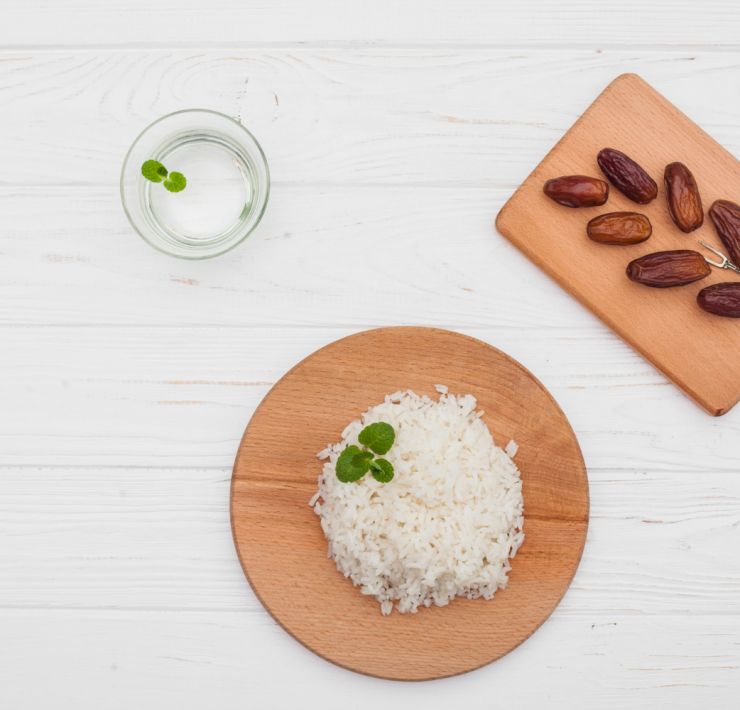PCOS and Nutrition: A Guide to Eating for Better Reproductive Health
- Polycystic ovary syndrome (PCOS) is a common hormonal disorder that affects up to 10% of women of reproductive age.
- Eating a healthy diet can help to improve insulin sensitivity and reduce blood sugar levels. This can lead to a number of benefits for women with PCOS.

Polycystic ovary syndrome (PCOS) is a common hormonal disorder that affects up to 10% of women of reproductive age. It is characterized by a variety of symptoms, including irregular or missed periods, acne, excess hair growth, weight gain, infertility, and mood swings.
There is no cure for PCOS, but there are a number of treatments that can help manage the symptoms. These treatments can include lifestyle changes, such as diet and exercise, as well as medication.
If you think you may have PCOS, it is important to see a doctor to get a diagnosis. Early diagnosis and treatment can help to prevent some of the long-term complications of PCOS, such as heart disease, stroke, and type 2 diabetes.
Table of Contents
How diet and nutrition affect PCOS
PCOS is often associated with insulin resistance, a condition in which the body’s cells do not respond properly to the hormone insulin. Insulin is responsible for helping the body use glucose (sugar) for energy. When cells are resistant to insulin, glucose levels in the blood can rise.
High blood sugar levels can trigger a number of problems, including weight gain, acne, and excess hair growth. They can also make it difficult for the ovaries to release eggs, which can lead to infertility.
Eating a healthy diet can help to improve insulin sensitivity and reduce blood sugar levels. This can lead to a number of benefits for women with PCOS, including:
- Weight loss
- Reduced acne
- Reduced excess hair growth
- More regular periods
- Improved fertility
What to eat and what to avoid
So, what should women with PCOS eat? The best diet for PCOS is one that is low in processed foods, sugary drinks, and unhealthy fats. It should be high in fiber, protein, and healthy fats.
Here are some specific foods and food groups that are recommended for women with PCOS:
- Fruits and vegetables: Fruits and vegetables are low in calories and high in fiber, vitamins, and minerals. They can help to lower blood sugar levels and improve insulin sensitivity.
- Whole grains: Whole grains are a good source of complex carbohydrates, fiber, and vitamins. They can help to keep blood sugar levels stable.
- Lean protein: Lean protein, such as chicken, fish, beans, and tofu, can help to build and repair muscle tissue. It can also help to keep blood sugar levels stable.
- Healthy fats: Healthy fats, such as those found in olive oil, nuts, and seeds, can help to improve insulin sensitivity and reduce inflammation.
Here are some foods and food groups that women with PCOS should avoid:
- Processed foods: Processed foods are often high in unhealthy fats, sugar, and salt. They can also be low in nutrients. Eating processed foods can worsen insulin resistance and other symptoms of PCOS.
- Sugary drinks: Sugary drinks, such as soda, juice, and sports drinks, are high in sugar and calories. They can raise blood sugar levels and worsen insulin resistance.
- Unhealthy fats: Unhealthy fats, such as those found in butter, lard, and fried foods, can increase inflammation and worsen insulin resistance.
Making dietary changes
Making dietary changes can be difficult, but it is important to remember that even small changes can have a big impact on your health. Here are a few tips for getting started:
- Start by making small changes to your diet, such as swapping sugary drinks for water or eating more fruits and vegetables.
- Find healthy recipes that you enjoy. There are many cookbooks and websites that offer healthy recipes that are also delicious.
- Talk to your doctor or a registered dietitian to get personalized advice on how to improve your diet.
Conclusion
Diet and nutrition play an important role in managing the symptoms of PCOS. Eating a healthy diet can help to improve insulin sensitivity, reduce blood sugar levels, and promote weight loss. This can lead to a number of benefits, including reduced acne, excess hair growth, and irregular periods, as well as improved fertility.
If you have PCOS, it is important to talk to your doctor or a registered dietitian to get personalized advice on how to improve your diet.
Thanks for reading! We hope this helps you on your journey to becoming a fitter and healthier version of yourself. Don’t forget to follow @naijafitfam on Instagram for more helpful content.




















